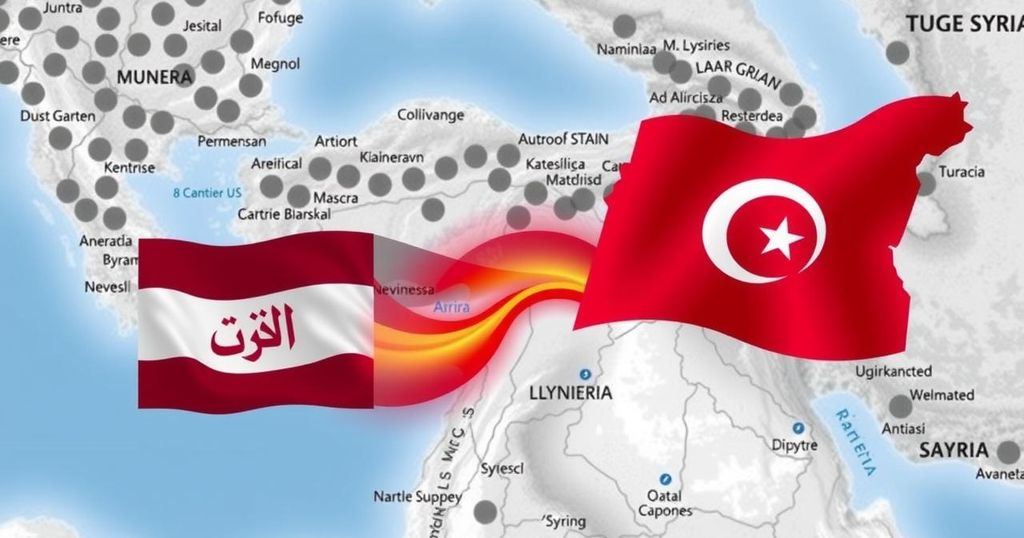Qatar’s Foreign Ministry has dismissed media speculation about reviving a pipeline to transport natural gas to Europe via Turkey and Syria, emphasizing that the discussions are unfounded and focused on humanitarian support instead. Experts express skepticism about the pipeline’s feasibility, arguing that Qatar’s planned LNG expansion makes such a project economically impractical. The article outlines the background of the original proposal, the geopolitical context, and the current focus of Qatari energy strategy.
The Qatari Foreign Ministry has firmly rejected speculation regarding the potential revival of a pipeline project intended to transport natural gas from Qatar to Europe via Syria and Turkey. The claims, characterized as mere speculation by the spokesperson, Majed bin Mohammed al-Ansari, were prompted by recent discussions following the recent political shifts in Syria. Turkish Energy Minister Alparslan Bayraktar had previously indicated that the feasibility of the pipeline could hinge upon Syria restoring its territorial integrity and stability.
Initially proposed in 2009, this ambitious pipeline project, estimated at $10 billion, aimed to connect Qatar’s South Pars/North Dome gas field to Europe through several countries including Saudi Arabia, Jordan, and Turkey. However, it faced staunch opposition from former Syrian President Bashar al-Assad, who favored maintaining Russia’s role as a primary gas supplier to Europe. Currently, Qatar’s focus remains on humanitarian support for Syria, as emphasized by al-Ansari in light of the recent inquiries into the project’s revival. Furthermore, energy experts have expressed skepticism about the pipeline’s profitability and practicality amidst Qatar’s ongoing expansion of liquefied natural gas (LNG) production.
Experts assert that given Qatar’s plans to increase LNG output significantly, the costs and complexities inherent in building a pipeline through regions of political instability outweigh potential benefits. Oil and gas analyst Sohbet Karbuz noted that Qatar would face challenges in securing long-term buyers for its expanded LNG capacity, rendering a competing pipeline project impractical. Others, like Ali Arif Aktürk, echoed these sentiments, advocating for the maximization of existing LNG infrastructure over embarking on the uncertain pipeline venture.
The proposal of the Qatar-Turkey Natural Gas Pipeline has surfaced repeatedly since its original conception in 2009, with renewed discussions arising after changes in the Syrian political landscape. Originally blocked by the Assad regime in favor of bolstering relations with Russia, the project’s revival has been a topic of debate as regional stability remains uncertain. However, the Qatari government has shifted its focus towards providing humanitarian assistance rather than pursuing new infrastructure projects, particularly amidst skepticism about the economic viability of such a pipeline given Qatar’s commitment to expanding LNG production. The global energy landscape continues to evolve with European nations increasingly diversifying their energy sources towards renewables, further complicating the prospects for new gas pipeline developments. As Qatar plans to significantly boost its LNG production by 2030, industry analysts express doubts about the practicality of investing in a gas pipeline that traverses politically volatile regions.
In conclusion, the Qatari government has decisively ruled out any renewed efforts to revive the Qatar-Turkey natural gas pipeline project, citing it as speculation rather than a feasible undertaking. Amidst significant expansions in LNG production capabilities, energy experts also express concern over the logistical and economic challenges the project would face. Qatar aims to maintain stability in the region while prioritizing LNG exportation as an effective and flexible energy supply method in light of changing market demands in Europe. As discussions about regional energy needs continue, alternative sources and existing LNG infrastructure appear to remain more viable options than the proposed gas pipeline.
Original Source: www.turkishminute.com






